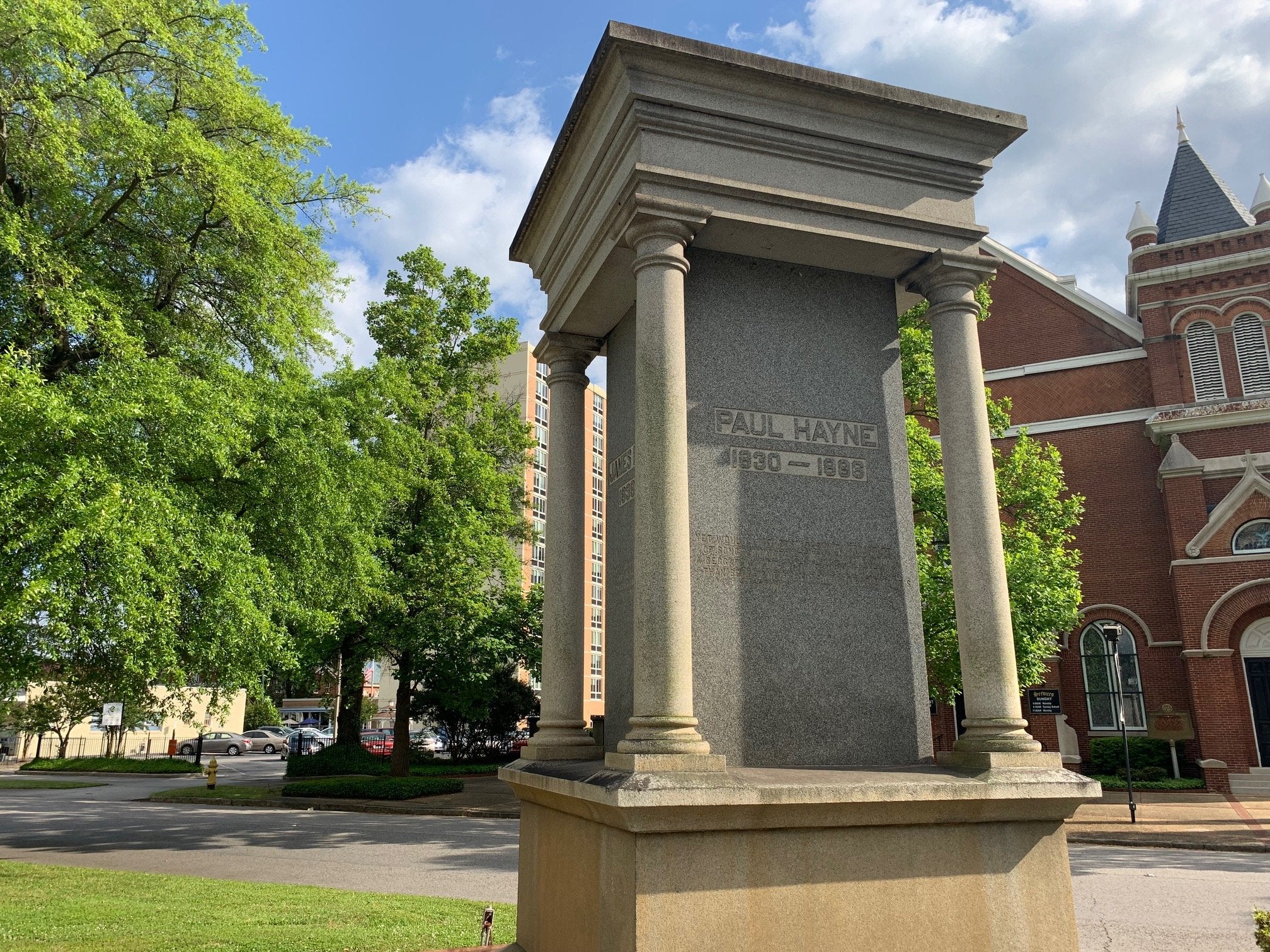It’s not generally known that Grovetown once was home to a famous poet; however, it was the setting in which Paul Hamilton Hayne penned some of his best works. Hayne was famous during his lifetime but his notoriety pretty much died with him.
Born in 1830, Hayne grew up in a wealthy section of Antebellum Charleston. According to the “Swanee Review,” Hayne’s father died when he was still a young boy and left him a sizable inheritance. Hayne went to live with his uncle and was afforded the best schooling along with all the trappings that came with being a member of Charleston’s high society.
Hayne was trained in law and was expected to join an elite law firm, but at the last moment, he decided he wanted to become a man of letters instead. Having such enormous wealth afforded him the privilege to do virtually anything he wanted, so he set about becoming a poet.
MORE: Something you might not have known: Augusta’s Ensign fountain
In the 19th century, poets were among the “rock stars” of their time. Hayne showed tremendous talent at a young age. By age 15, he was publishing poetry in the Charleston Courier newspaper under the pseudonym of “Alphaeus,” according to the Georgia Historical Society.
However, as a young adult, Hayne became better known for his journalistic work and critiques of other poets in “The Southern Literary Gazette,” “Russell’s Magazine” and “The Southern Literary Messenger,” all prominent magazines of their day. His Civil War-era writings did show favor for the Confederacy, but not to the rabid degree of contemporaries such as Henry Timrod.
The onset of the Civil War would change Hayne’s life and fortunes forever. Due to his life-long bad health, Hayne could not enlist as a soldier and instead joined the staff of South Carolina Gov. Francis Pickens. It is unclear if he joined the governor’s staff out of a sense of duty or for some other reason, but in any case, Hayne remained on the governor’s staff only briefly because of worsening health.
During the bombardment of Charleston, Hayne’s home, along with his beloved library, was firebombed and destroyed. According to the “Swanee Review,” Union soldiers looted the burned out his house and carried off the family’s priceless silver collection.
MORE: Something You Might Not Have Known: Ike and the National
For unknown reasons, Hayne decided to abandon Charleston and relocate to Grovetown, which at the time was sparsely populated and consisted mostly of miles and miles of pine forest. Hayne purchased land, which he named “Copse Hill,” and commissioned the building of what was described at the time as a large wooden, tin-roofed shed.
Infirm and penniless, Hayne resorted to using a workbench left behind by carpenters as his writing desk. Despite his new-found poverty, it was widely reported that Hayne, his wife and young son lived a happy existence in their remote new home, though in some of his letters, he bemoaned the “lack of culture” in Grovetown when compared with Charleston.
Slowly, Hayne began to see success with his works being featured in “Harper’s New Monthly,” “The Atlantic Monthly” and “Southern Bivouac.”
In his book, “Paul Hamilton Haynes,” Rayburn Moore describes Hayne as being heavily influenced by William Wordsworth, John Keats, Alfred Tennyson and Geoffrey Chaucer. While much of his writings did include romanticized depictions of the Antebellum south, even people living in the North were fans of his work, according to Moore.
While Hayne did achieve the fame he so richly desired, with many calling him the unofficial poet laureate of the South, his fame did not translate into fortune. Because of his ill health, he was largely unable to tour and promote his work.
As dusk began to settle over Hayne’s life, people’s reading preferences began to change. Readers no longer enjoyed flowery depictions of a war they’d soon fain to forget. The works of Edgar Allen Poe were becoming popular again, and humorist Mark Twain had become a superstar, leaving all others in his wake.
Still, despite his failing health and continued poverty, Hayne remained optimistic, even cheerful, in his writings:
“Let the world roll blindly on,
“Give me shadow, give me sun,
“And a perfumed eve as this is.”
Hayne died in 1886 without even the means for burial, so city leaders in Augusta provided him with a grave in Magnolia Cemetery where he rests to this day. A large granite monument on Greene Street also recognizes the accomplishments of Grovetown’s forgotten poet laureate. And that is something you might not have known.
Scott Hudson is the senior reporter for The Augusta Press. Reach him at scott@theaugustapress.com











